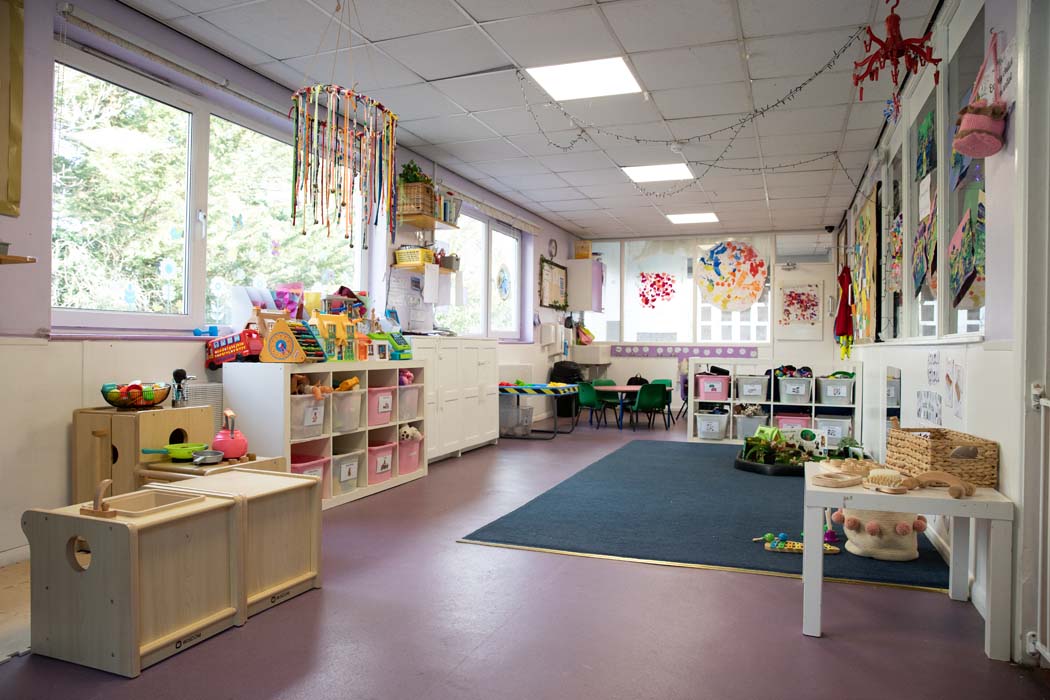
Childminder vs Nursery: What's Best For My Child?
Choosing the right childcare is one of the biggest decisions you’ll make as a parent. The setting you choose has a direct impact on your child’s learning, social development, and readiness for school, so it is no surprise that many parents debate over what childcare setting is the best!
Two of the most popular choices in the UK are childminders and nurseries. While both provide safe, nurturing environments, they differ in structure, costs, and learning opportunities. In this article, we’ll compare childminder vs nursery to help you decide what’s best for your child and your family.
What Is a Nursery?

A nursery is a group-based early years education setting where children are cared for and taught by qualified childcare professionals. Nurseries follow the government’s Early Years Foundation Stage (EYFS) framework, ensuring children develop key skills in communication, physical development, literacy, and emotional growth.
Nurseries typically offer:
- A structured daily routine
- Group-based learning with children of a similar age
- Access to outdoor play areas
- A stimulating mix of toys, books, and resources
- Qualified staff with specialist training
This structured, social environment helps prepare children for primary school, giving them a strong foundation in learning and social skills.
What Are the Benefits of a Nursery?
Key benefits of choosing a nursery include:
- Structured Curriculum: Follows EYFS guidelines with planned activities across learning areas.
- School-Readiness: Builds confidence and independence in preparation for reception.
- Social Interaction: Encourages friendships and teamwork with children of the same age.
- Stimulating Environment: Wide variety of resources, from sensory play to outdoor activities.
- Qualified Staff: Early years professionals with training in child development.
- Accreditations & Safety: Nurseries are heavily regulated, giving parents peace of mind.
- Extra Support for Special Needs: Staff are trained in inclusive education; Abbey Wood Grange has an in-house SENCO, and staff are trained in sign language.
What Is a Childminder?

A childminder is an individual who provides childcare in their own home. They are also registered with Ofsted and must meet EYFS requirements, but the scale is smaller and more personal compared to a nursery.
Childminders typically:
- Care for children of different ages together (siblings included)
- Work with smaller groups, offering more individual attention
- Provide flexible hours to suit parents’ schedules
- Create a home-from-home environment
This more informal setting can be a good fit for families wanting consistency with one main caregiver.
What Are the Benefits of a Childminder?
Common benefits of using a childminder include:
- Personalised Attention: Smaller groups mean more one-on-one care.
- Strong Caregiver Bond: Your child builds trust with a consistent adult.
- Sibling Care: Children of different ages can stay together.
- Flexible Hours: Often better for parents with non-standard work shifts.
- Family-Style Environment: Comfortable and homely.
- Routine Adaptability: Can follow your child’s specific needs and patterns.
What Is the Difference Between a Childminder and a Nursery?
Curriculum & Learning
- Nurseries: Structured, curriculum-led learning with group activities. Helps with cognitive development, social skills, and preparing for school.
- Childminders: More flexible, but may not provide the same range of structured learning opportunities.
Costs
- Nursery Costs: The cost of a nursery varies widely, but in South London, they average around £65–£85 per day.
- Childminder Costs: Typically £50–£70 per day, depending on location.
- Both accept childcare vouchers, tax-free childcare, and government-funded free hours.
Day-to-Day Structure
- Nursery: Follows a timetable of play, meals, naps, and structured activities.
- Childminder: More adaptable, as childminders look after smaller groups, routines are shaped around the children.
Social Interaction
- Nursery: Children mix with peers, learning cooperation, empathy, and teamwork.
- Childminder: Fewer children, so less peer interaction but more personalised attention.
So, Childminder vs Nursery: What’s the Right Choice?
The best option depends on your child and your family’s needs. You should consider:
- Your Child’s Learning Style: Does your child thrive in structured group activities, or prefer a smaller, quieter environment?
- Your Work Schedule: Nurseries often match standard working hours, while childminders may offer more flexible care.
- Your Childcare Budget: Costs differ, though both accept childcare schemes.
- Special Needs Support: Nurseries (like Abbey Wood Grange) offer tailored support, structured frameworks and staff trained in areas such as sign language, while childminders may offer more one-to-one learning.
At the end of the day, both options can provide excellent care. But if you’re looking for a structured learning environment with a focus on social development and school readiness, a nursery in South Croydon like Abbey Wood Grange may be the best fit for your child!
If you’d like to learn more about our nursery, simply get in touch with our friendly team today. We’ll be more than happy to answer any questions you may have about our facilities, policies, or anything else related to the nursery! Alternatively, you can schedule a visit with us to meet the team and see how we work.